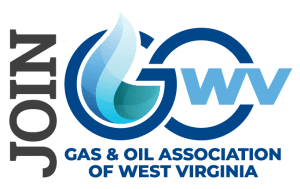By: Joe Eddy, President/CEO, Eagle Manufacturing Company, Wellsburg, WV
June 20, 2017

Many might not realize the sheer number of items they use on a daily basis that contain refined oil and natural gas. Just this morning, you probably used several products made with these ingredients: your toothbrush and toothpaste, shampoo, mascara, contact lenses, and ibuprofen. Even the clothes on your back, shoes on your feet, and iPhone in your pocket, contain oil and natural gas elements. Having access to affordable and safe energy is something we might take for granted, but it’s undeniably crucial to our quality of life.
Natural gas, specifically, is a critical natural resource for the manufacturing plants that develop the materials that go into these everyday products: plastics, rubbers, glues, paints, and lubricants. At Eagle Manufacturing, natural gas fuels our operations and provides the raw materials for many of the products we create for: spill containment, guarding and protection, storage, material handling, and poly drums. Without access to affordable natural gas, domestic manufacturing would suffer greatly.
It’s good news that in recent years, we’ve seen production of domestic natural gas flourish. Thanks to the Marcellus and Utica shale formations, production is forecast to increase 44 percent by 2040, according to the United States Energy Information Administration. Although, even with such an abundance of resources, a significant hurdle remains: safely and efficiently transporting energy to manufacturers and consumers.
Regional access to our nation’s wealth of natural gas lags behind production. Without reliable access, the local manufacturing economy will take a hit and the prices of everyday products made with natural gas will rise. If we don’t overcome this challenge soon, West Virginia will suffer and the ripple effects will be felt across the country.
But there is a solution: underground pipelines. Constructing midstream infrastructure projects, such as pipelines, fixes the bottleneck in the energy supply chain.
Take the Rover Pipeline, for example. This new 713 mile energy infrastructure project will run through Michigan, Ohio, and West Virginia, transporting billions of cubic feet of natural gas per day. It will deliver gas from the rapidly expanding Marcellus and Utica shale production areas across the Midwest, Northeast, East Coast, and Gulf Coast, via interconnects with existing pipelines.
Construction of the Rover Pipeline will bring huge economic benefits to West Virginia and the other states it passes through, like, 10,000 well-paying construction jobs and millions of dollars will flow into local communities. Improved access to natural gas will likely create jobs in the private sector, especially in manufacturing. Millions in additional tax revenue will support local schools and community projects. West Virginia alone will see $3.9 million added to the state’s economy.
Nationally, pipelines like Rover Pipeline will increase domestic energy independence and demand for U.S.-manufactured goods required for construction of the project. It will lower operating costs for regional farmers, small businesses, and local utilities. Pipelines increase our access to affordable products that are essential to human health and wellbeing, like medical supplies and pharmaceuticals. You might even notice prices dropping on those everyday products you use as abundance of and access to natural gas continues to improve–which means more money back in your pocket.
Most importantly, pipelines are the safest means to transport natural gas. Built under the scrutiny of all federal, state, and local regulatory authorities, the Rover Pipeline will meet or exceed all safety requirements – including rigorous standards set by the approved construction company. Today, technologically advanced techniques, such as x-ray inspections, high pressure water tests, automated valves that shut off the flow of gas in case of an emergency, and 24/7 monitoring, make safety the number one priority in pipeline construction.
Construction of the Rover Pipeline is certainly something to celebrate. As the President of Eagle Manufacturing, I know I am not alone in strongly supporting its construction. The pipeline will improve quality of life in West Virginia by bolstering the energy and manufacturing sectors, the heart of our state’s economy.
I look forward to an efficient and successful completion of the construction of Rover Pipeline, but this is not just about West Virginia. The economic benefits of efficient and affordable energy will be seen across our great nation.

